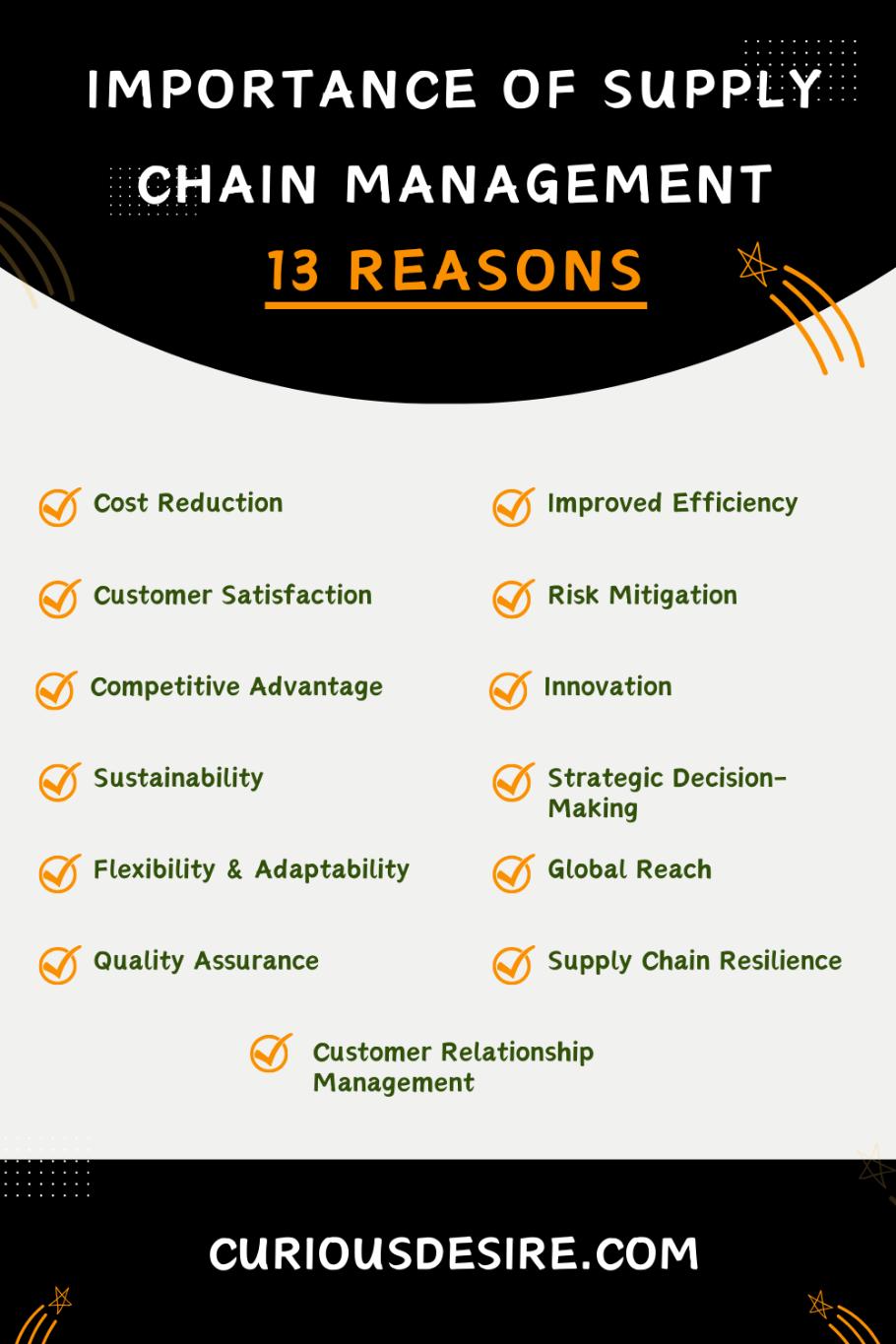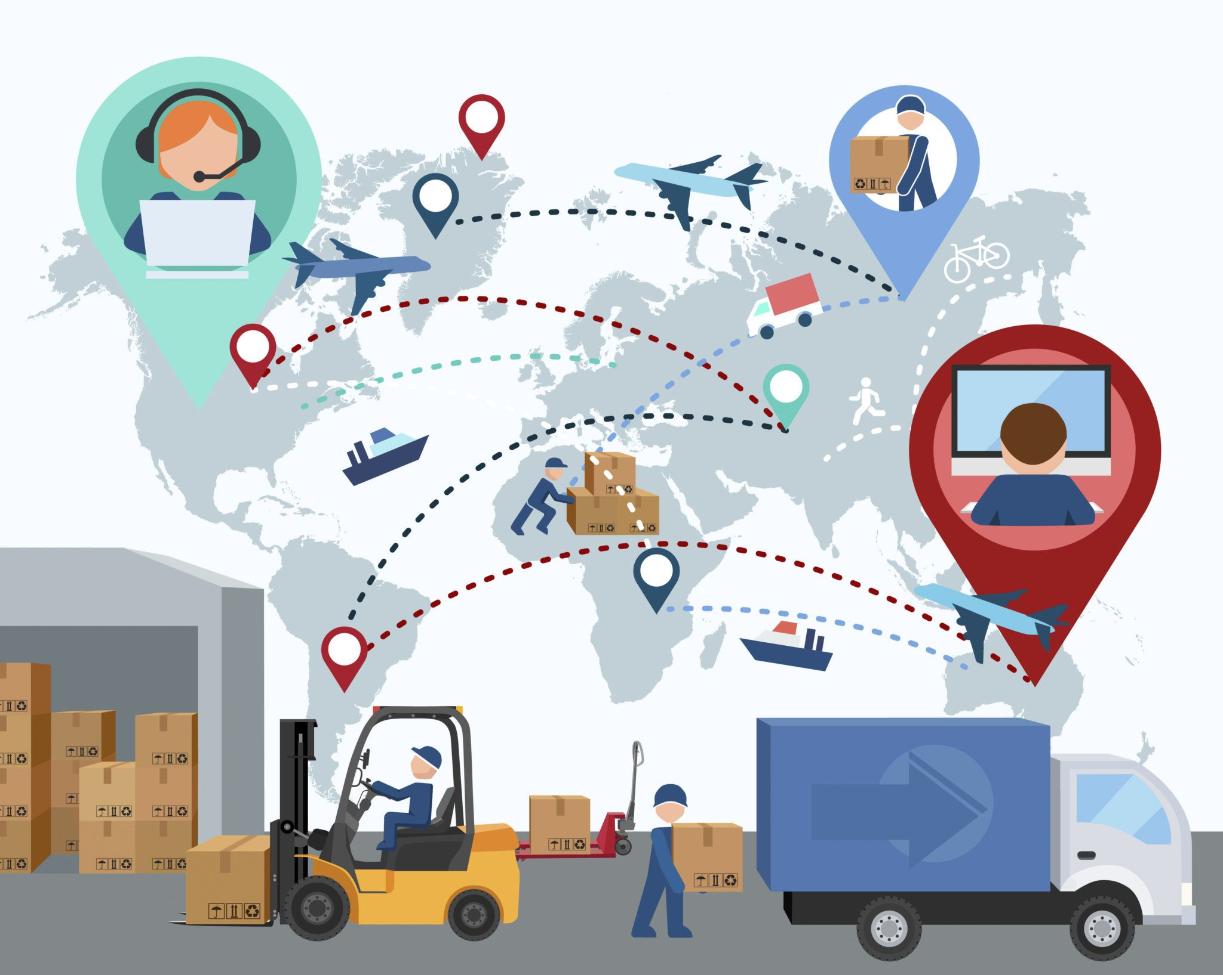Supply chain management is the foundation of modern businesses, ensuring the smooth movement of goods and services from suppliers to customers.
In today’s competitive environment, it is vital for achieving operational excellence and unlocking growth opportunities.
Let’s discuss the significance of supply chain management and its pivotal role in shaping organizational success.
[toc]
What Is Supply Chain Management?
Supply chain management (SCM) refers to the strategic coordination and integration of all activities involved in sourcing, procurement, production, and distribution of goods and services.
It encompasses the planning, execution, and control of these activities to optimize the flow of materials, information, and finances across the entire supply chain network.
The ultimate goal of supply chain management is to enhance customer value, achieve operational efficiency, and gain a competitive advantage in the marketplace.
Importance of Supply Chain Management
Below is a list of reasons that underscore the importance of supply chain management.
Let’s find out!
Importance of Supply Chain Management FAQs
1. What is the most important thing in supply chain management?
The most important aspect of supply chain management is ensuring seamless coordination and integration of all activities involved in sourcing, production, and distribution to meet customer demand efficiently and effectively.
2. What is supply chain management with examples?
Supply chain management (SCM) involves the planning, execution, and control of activities related to the flow of goods and services from the point of origin to the point of consumption.
For example, in the automotive industry, SCM includes procurement of raw materials, manufacturing of components, assembly of vehicles, and distribution to dealerships.
3. What is the concept of SCM?
The concept of SCM revolves around optimizing the flow of materials, information, and finances across the entire supply chain network to maximize customer value and achieve a competitive advantage in the marketplace.
It encompasses various processes such as procurement, production, logistics, and inventory management.
4. What is the process of SCM?
The process of SCM involves several interconnected activities, including:
- Demand planning and forecasting
- Procurement and sourcing
- Production planning and scheduling
- Inventory management
- Warehousing and distribution
- Transportation and logistics
- Supplier relationship management
5. What are the 7 supply chain functions?
The seven primary functions of the supply chain are:
- Planning: Forecasting demand, setting production schedules, and developing inventory strategies.
- Sourcing: Identifying and selecting suppliers, negotiating contracts, and managing relationships.
- Manufacturing: Transforming raw materials into finished products through production processes.
- Delivery: Ensuring timely and accurate delivery of products to customers or distribution centers.
- Inventory Management: Controlling and optimizing inventory levels to meet demand while minimizing costs.
- Transportation: Managing the movement of goods between locations using various modes of transportation.
- Return Management: Handling product returns, exchanges, repairs, and recycling efficiently and effectively.
Final Thoughts
Supply chain management is the backbone of modern businesses, ensuring an efficient flow of goods and services.
Its importance lies in cost reduction, operational efficiency, innovation, and collaboration. It drives customer satisfaction, risk mitigation, and competitive advantage.
Embracing sustainability and resilience, it navigates complexities for growth. SCM orchestrates processes and relationships to deliver value and organizational success.


